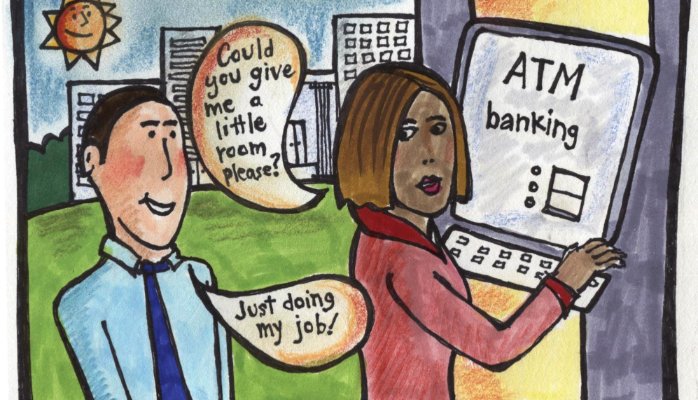Imagine this situation: a table of 4 friends who are eating when, suddenly, someone brings up the issue of monthly income as a complaint by equating it with inflation. Most likely, from there, the conversation becomes somewhat tense or the least evasive: I’m earning X% more than the year before, I was not even increased yet, I pay taxes, and many more statements that are around the issue of monthly income but hardly address it with specific numbers.

Why does this happen? The explanation is not as simple as it seems, since, as we will see later, there are several factors that lead Kenyans to be reluctant to speak “openly” about their monthly income.
We will see below 7 reasons why this silence often appears uncomfortable when talking about perceived money.
1.Taxes
The culture of not paying taxes exists in many people. The reason that the evaders wield has to do with the corruption existing in our country
The reality is that a country where people do not pay taxes is a country destined to fail. Even in the most capitalist countries (for example, the US), the state has a strong tax pressure, although in itself, its citizens take the tax payment as something normal and inevitable
It is likely that many Kenyans receive an important part of their income from the informal economy and therefore seek to avoid talking about income against people who are not extremely trustworthy, so as not to risk “laundering” and paying taxes.
-
Insecurity
The fear of robberies, express kidnappings, outpourings and other criminal variants can also make people take more care when it comes to saying what they earn. In any case, it is not the most important reason when this “concealment” occurs between family members and / or friends, since we are talking about trust circles, but it can be an important factor when addressing the issue with people that you do not know too much
-
Charity
If someone wins well and tells it openly with his partner, family and friends, he can be exposed to the classic charity seekers, that is, to the request for money (loans, gifts, help, etc.) by them.
Faced with this, it is very common then to “declare”, even among extremely trustworthy people, half or less of what is really earned, as a way to protect income and / or avoid arguments or uncomfortable moments.
-
Envy
According to Wikipedia, envy is that feeling or mental state in which there is pain or misery for not owning what the other has, whether in goods, superior qualities or other kinds of things.
But whatever our definition of envy, in seeking to establish how happiness is measured, special emphasis is placed on the fact that we perceive it by comparing ourselves with those around us.
We live in a country in which the distribution of income is a pending issue, and therefore it may be common for friends or acquaintances throughout life to have differences in their income levels that may become important.
To avoid being envied or simply not to make another person who earns less feel bad, many Kenyans with higher incomes even lie and say that they earn much less than what they really perceive, as long as they do not feel the potential negative.
5.Problems
In the unconscious of many people, money is associated with something dark, negative, dishonest and dirty. This is how, then, if that person manages to earn more money than the average of his acquaintances, I am likely to live with this situation and seek his income to feel “better person”.
In our country, it is very common to say that if someone has money, surely he is corrupt, to trafficker or that he inherited assets but he does not know how to do anything. Unfortunately, we have a relationship with the success of others that is largely supported by the point seen previously (envy).
-
Examples
There is a feeling (which may or may not be real) but the vast majority of the political leaders we had in the last ten years lie to all Kenyans when it comes to declaring their profits. And these fears are often reflected when their mandates is visible to quality of life much greater than could be accessed with the perceived retirement, even though it is a privileged retirement.
If those who have to lead by example lie, why should I tell the truth? This is an argument that could be used to not honestly talk about perceived income.
7.Competition
Our society, like the rest of the capitalist economies, bases an important part of its pillars on competition. But on a personal level, being a competitive person can generate a lot of stress, anguish and depression.
In today’s world the value of a person is rather given by what is possessed than by what is. This myopia causes many values to be disrupted, and people who make a bad framing of competitiveness (believing that, for example, the end always justifies the means) fall into unfair and even savage competition to obtain what they want, even at coast of trampling on the one next to them.














